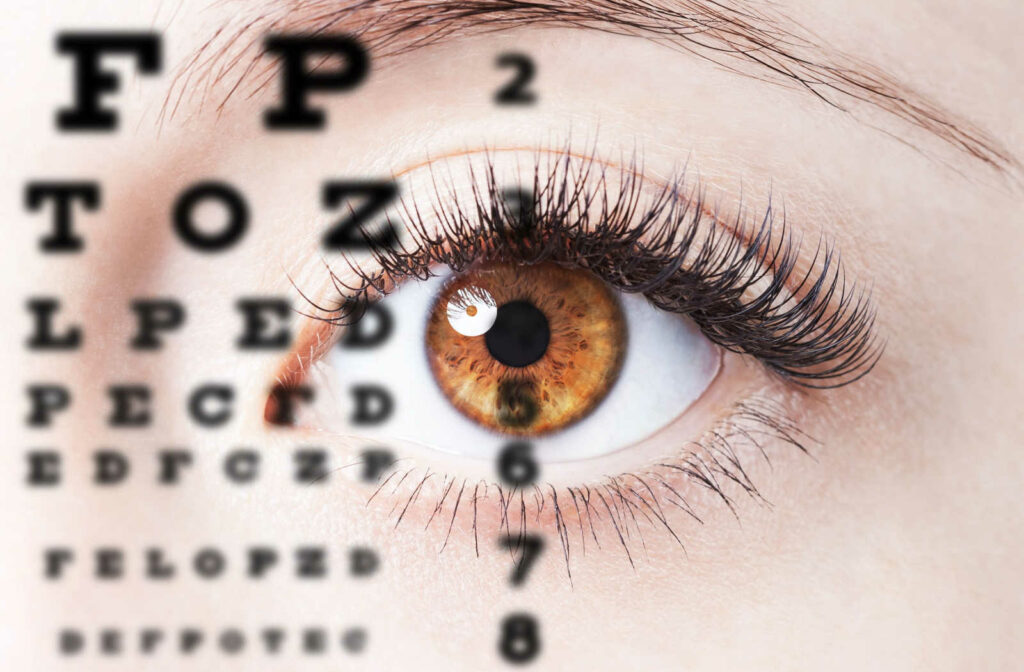All Categories
Featured
Table of Contents

Regular eye evaluations are vital for maintaining great vision and detecting possible eye health and wellness problems early. Nonetheless, the frequency of these examinations can differ substantially based on an individual's age, way of life, and general wellness. Recognizing the recommended schedule for eye exams can help ensure that people of all ages receive proper care and tracking for their eye wellness.
Newborns and Toddlers (0-2 Years)
For young children and infants, eye examinations are crucial for spotting any prospective vision issues beforehand. The American Academy of Ophthalmology recommends that a child's first eye exam ought to occur at around 6 months of age. Throughout this initial see, the eye treatment professional will certainly examine the child's visual advancement and look for any type of noticeable eye concerns.Following this very first test, it is suggested that kids have one more eye examination at age three. This browse through will concentrate on assessing the child's total aesthetic function, including eye placement and the capability to track things. If no concerns are found, the following examination should be scheduled prior to the kid begins school, typically around age 5 or six.
School-Aged Children (6-18 Years)
Regular eye tests need to be scheduled every one to two years when kids get to institution age. Vision is essential for discovering and growth, and numerous schools conduct vision screenings. These screenings do not change an extensive eye test by an eye treatment specialist.For kids entailed in sporting activities or tasks requiring substantial visual emphasis, annual eye tests may be suggested. Additionally, if a youngster shows signs of vision problems-- such as trouble reading, squinting, or constant migraines-- a browse through to the eye doctor should be arranged as quickly as feasible.
Young Person (19-39 Years)
Youthful grownups typically have less vision adjustments than older age, but normal eye examinations remain crucial. The general recommendation is to schedule an eye test every two years throughout this period. People with particular threat variables-- such as a family members background of eye disease, diabetic issues, or those that wear get in touch with lenses-- should think about yearly eye exams.Additionally, those that invest significant time on electronic gadgets may experience electronic eye stress. If symptoms such as dry skin, fatigue, or blurred vision take place, it may be a good idea to see an eye care expert earlier.
Adults (40-64 Years)
As individuals enter center age, the likelihood of developing vision problems increases. Grownups aged 40 to 64 ought to arrange eye exams each to two years. This age might begin to experience presbyopia, an all-natural age-related problem that makes it challenging to concentrate on close objects. Eye exams can additionally aid detect other common age-related conditions such as glaucoma, cataracts, and macular degeneration.If people in this age team have risk aspects such as high blood pressure or diabetes, they might need more constant evaluations to check their eye wellness closely.
Senior Citizens (65 Years and Older)
For senior citizens, routine eye exams end up being also much more critical. The American Optometric Association advises that individuals aged 65 and older have an eye examination at the very least as soon as a year.Final thought.
Recognizing the proper routine for eye exams based on age is vital for keeping ideal eye health throughout life. From infants to seniors, regular eye evaluations play an essential role in identifying problems early and making sure that vision stays sharp. By adhering to these standards and talking to an eye care expert, people can take proactive steps towards maintaining their vision and general health and wellness. Whether it's a youngster's first see or a senior's annual exam, focusing on eye care is a financial investment in lifelong well-being.Latest Posts
Relax with Stunning Sunsets at Deauville Inn: Your Beachfront Getaway
Published May 22, 25
2 min read
Relish Each Season at Deauville Inn: From Winter Warmth to Summer Sunshine
Published May 13, 25
2 min read
An Elevated Culinary Experience
Published Apr 16, 25
1 min read